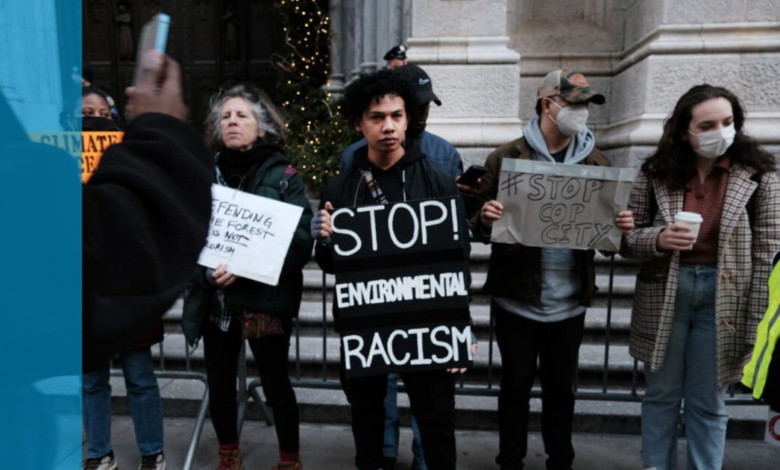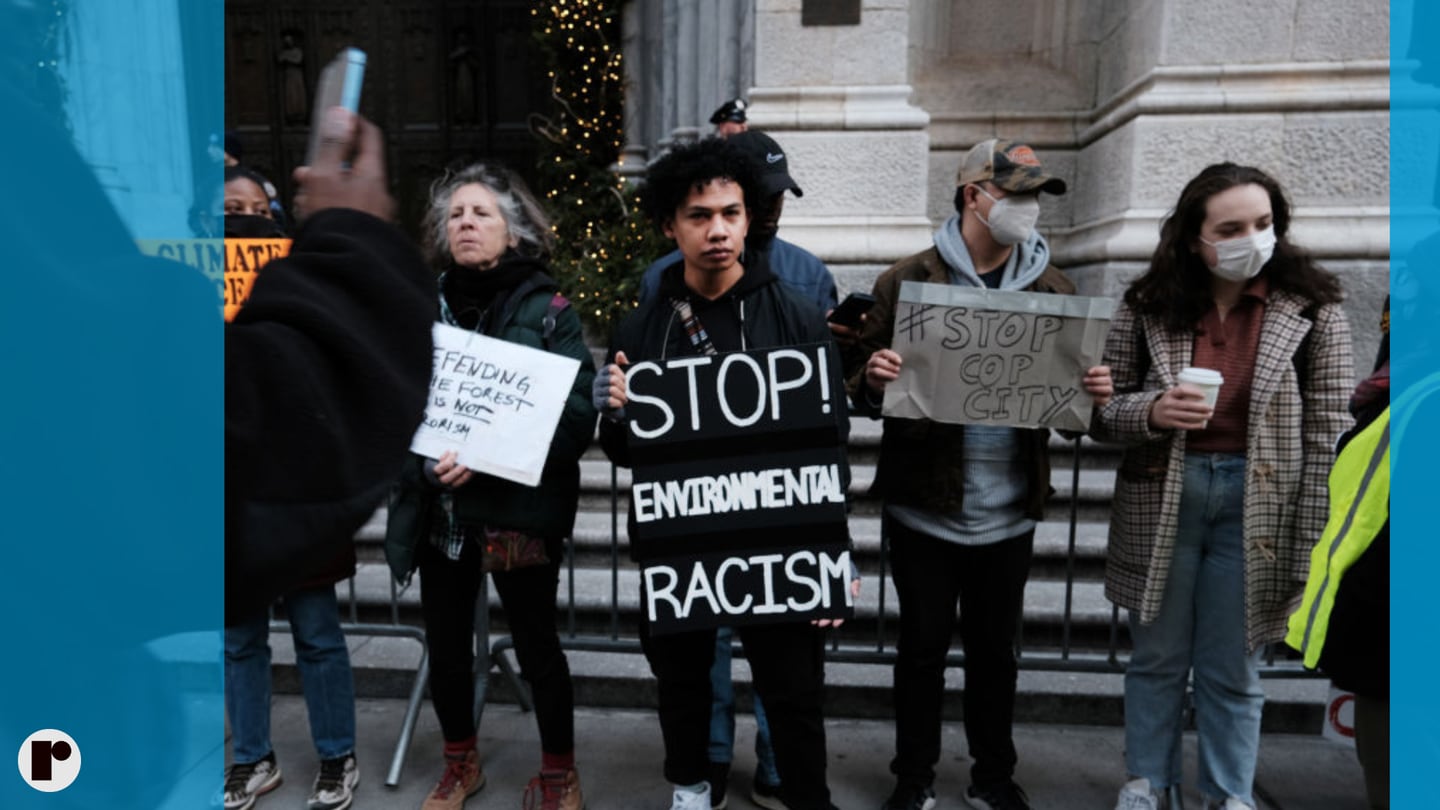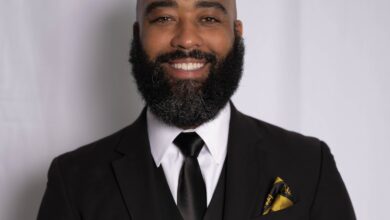Atlanta’s Cop City is a lesson for activists everywhere – Reckon


The city of Atlanta prides itself on a progressive history built through generations of struggles. It has been called “The City Too Busy To Hate,” “The Cradle of the Civil Rights Movement” and even “The Black Mecca.”
But many of us living in this metropolis find ourselves engulfed in a city’s existential crisis as we watch the showdown over the construction of Cop City. Officially named the Atlanta Public Safety Training Center, the $90 million dollar project has been met with critique, deadly protest, and most recently the indictment of 61 protesters on racketeering charges. This, combined with the city’s refusal to begin tallying the more than 100,000 signatures on a petition to put the lease of the land for Cop City on the ballot for residents to vote on, has finally begun cracking the shining veneer of a progressive Atlanta that has held steady despite years of controversial and underwhelming leadership.
Over the past 30 years, Black people have moved to Atlanta in droves, in a sort of reverse Great Migration. We flocked to this blue spot in the sea of red in search of the same things previous generations sought in the original migration: economic opportunity, affordable housing, a concentration of Black folks that provided a buffer–if not protection–from racism. My husband and I were among those who came to Atlanta from the Gulf Coast in the aftermath of Hurricane Katrina seeking sanctuary from anti-Black hatred and state-sanctioned violence in what we hoped was the refuge of a holy city.
But like many progressive cities, while Atlanta may appear to be a Mecca on the outside, the reality is one of mass incarceration, rampant gentrification, and vast economic inequality that serves to protect the interests of those in power and maintain a status quo of structural racism.
I have lived and organized in and around Atlanta for seventeen years. This city has, time and again, demonstrated that Zora Neale Hurston was right when she said that “all skinfolk ain’t kinfolk.” Black leadership under Kasim Reed meant parties with hip hop stars while large swaths of Black neighborhoods were displaced and historical institutions were demolished to make way for the Mercedes Benz Stadium. Black leadership under Keisha Lance Bottoms meant Black mayor panels on CNN alongside Lori Lightfoot and Muriel Bowser (who both had serious issues in their own cities) in the aftermath of the murders of George Floyd and Breonna Taylor, while trotting out celebrities to silence the cries of residents in response to the murder of Rayshard Brooks. Both of these mayors made and promptly undermined promise after promise to progressives.
“All skinfolk ain’t kinfolk”
We are not naive here. Atlanta activists and organizers are smart and savvy and strive to be disciplined and strategic. So when Andre Dickens, the city councilman who many organizers had stood beside at rallies calling for a $15 minimum wage, who sponsored the legislation calling for the closing of the city jail, looked poised to run for mayor, movements saw him as the best option in a crowded field. And despite his shifting positions, progressive organizations mobilized to get him elected.
In the two years since his election, just like his city, he has hidden behind those progressive credentials to cover up a rightward shift so significant that he’s found himself more often than not aligned with wealthy Buckhead denizens and Republican Governor Brian Kemp.
As protests raged, student organizers from the Atlanta University Center invited the mayor to a town hall forum at Morehouse College. Besides requiring that the forum only be open to AUC students, giving inaccurate and untruthful answers to questions, and, at one point, appearing to fall asleep onstage, the highlight of the forum was a clearly agitated Dickens responding to a student calling him a “sellout” by yelling at the students to check his resume.
But past behavior does not absolve present actions. A progressive history does not excuse a fascist present.
And so, the very progressives responsible for Andre Dickens’ election have vowed that he will never see another term.
Actions: meet consequences
To be clear, Atlanta is a microcosm. The battles we face here, that organizers have been taking up for years, are not unique. But as W.E.B. DuBois famously said, “As the South goes, so goes the nation.”
Let Atlanta be a warning and a teacher. With attacks on marginalized communities and on democracy coming from every direction, it is too easy to get lost in obvious injustices at the hands of familiar villains. Donald Trump and Ron DeSantis are easy targets, as their barely disguised racism, homophobia, and misogyny regularly make headlines across the country.
Meanwhile, in a country facing a rising tide of fascism, even those who purport to be on our side have the potential to be tainted by the allure of power. The story unfolding around Cop City has shown us that wherever wealth, policing, and state apparatuses converge, allies can become fickle.
We must resist at every turn.
Just Atlantans continue to be relentless in their fight against Cop City, people standing for justice must use every tool, every tactic, and every strategy at our disposal to win a true and robust democracy in every city everywhere.
The next several election cycles in Atlanta stand to tell an interesting story. Local organizers have built a swell of activity that, if maintained, could have dire consequences for sitting elected officials who do not act swiftly. Because Atlanta is a progressive city, even if its politicians have forgotten.
So-called progressive politicians would be wise to remember that their power and their accountability lies in the people, not in back rooms with the wealthy and the powerful. When you forget this, you are only one election away from where you began.
Anyone with something to sell can become a sell out. Do not put your people up for sale.
And to those in cities everywhere with hope in your eyes: do not be lulled to sleep by progressive platitudes. Peek inside the house, and be prepared to tear it down or be eaten alive.
Tamika Middleton is an organizer, writer, and unschooling mama, currently serving as the Managing Director of Women’s March. She is a founding member of the Metro Atlanta Mutual Aid (MAMA) Fund and JustGeorgia. She serves as a Community Advisory Board member of Critical Resistance, a Leadership Team member of the Kindred Southern Healing Justice Collective and an advisory board member of Cypress Fund. She can be found on Twitter at @combaheefree.



